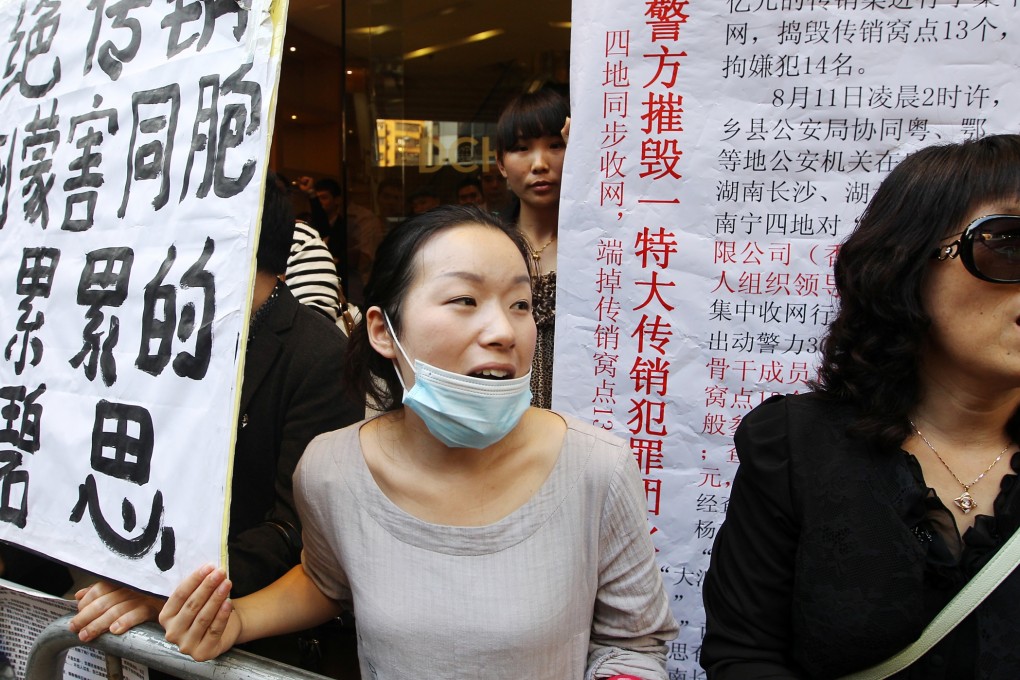Hong Kong multi-level marketing plan needs closer look
For a company that likes to sign up mainland distributors discreetly in Hong Kong to get around mainland law, Digital Crown Holdings (Hong Kong) Limited has attracted a lot of unwelcome attention lately. Twice within a month unhappy mainlanders have marched on Hong Kong government headquarters to call for tighter laws on multilevel marketing (MLM) schemes. The latest march followed the deployment of police armed with shields to prevent protesters entering the Causeway Bay premises of DCHL which, they claim, owes them HK$10 million. The protest continued yesterday.

For a company that likes to sign up mainland distributors discreetly in Hong Kong to get around mainland law, Digital Crown Holdings (Hong Kong) Limited has attracted a lot of unwelcome attention lately. Twice within a month unhappy mainlanders have marched on Hong Kong government headquarters to call for tighter laws on multilevel marketing (MLM) schemes. The latest march followed the deployment of police armed with shields to prevent protesters entering the Causeway Bay premises of DCHL which, they claim, owes them HK$10 million. The protest continued yesterday.
MLM schemes, illegal on the mainland but not in Hong Kong, are compared with pyramid sales schemes, banned in both places. A pyramid sales scheme breaks a Hong Kong law that carries penalties of up to seven years' jail and a HK$1 million fine, while MLM schemes are said to get around it legally. It is no wonder senior DCHL instructors are at great pains to reassure new mainland applicants the difference prevails, even after recent amendments to Hong Kong's law.
DCHL markets health and beauty products through layers of distributors who recruit others. Companies and individuals engaged in MLM maintain any reward is for sales of genuine goods, rather than for the number of people recruited.
Protesters allege they were told to buy hundreds of thousands of dollars worth of goods that turned out not to be resaleable and that they never received any reward through a system of bonuses. A DCHL insider has conceded that the scheme is complex and says the company is waiting on legal advice on how to reform its marketing tactics. We trust it is serious about addressing grievances. Hong Kong is proud of its reputation as a good place to do business under the rule of law. In outlawing pyramid sales, it has rightly been concerned not to affect legitimate businesses. But it is also important that if the city is used as a base for inducing mainlanders to risk their money on get-rich-quick schemes, that laws banning dodgy business practices are not circumvented.